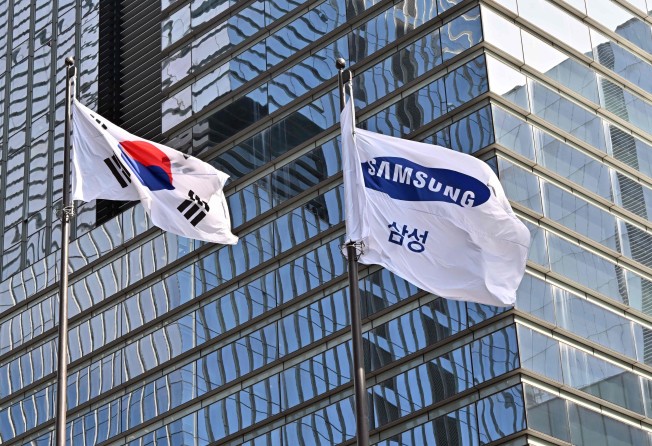
01:47
South Korean government hopes to boost kimchi industry with cabbage warehouses

Signs of stress in the South Korean economy have grown to levels similar to those of past financial crises, but the government and economists say a meltdown is unlikely as the country’s economic fundamentals are much different to those in 1997 or 2008.
A variety of economic indicators in September revealed the precarious state of the South Korean economy. Foreign exchange reserves have tumbled by the biggest margin since the global financial crisis. The won has fallen to a 13-year low against the US dollar. The country has recorded a six month trade deficit, while interest rates are being hiked.
Kang Sung-jin, a professor of economics at Korea University, said a financial crisis akin to those of the past was not on the cards, but the economy would go through a period of stagflation as growth is forecast to be slightly above 2 per cent this year and inflation is expected to be in the 5 per cent range.
He said domestic interest rates and China’s economic recovery will both have a major influence on economic prospects.
“In order to prevent an interest rate reversal with the US, the central bank must increase the rate of interest rate hikes,” Kang said. “At what point China overcomes Covid-19 also matters, as Korea’s trade dependence with China sits at almost 30 per cent.”
While raising interest rates to match the Fed’s level is vital to prevent a foreign exchange market crisis, high household debt and the corresponding negative impact on the real estate market may be the central bank’s top concern, said Choi Pae-kun, an economics professor at Konkuk University.
Bond market experts predict the Bank of Korea will raise interest rates by a half a percentage point this Wednesday to 3 per cent, which will help narrow the interest rate differential between the won and US dollar.
But not everyone is convinced it will be enough to ease pressure on the currency, with French bank Societe Generale saying a 0.5 per cent hike will not necessarily buoy the Korean won.
The bank also said last week that macroeconomic indicators do not support a 0.5 per cent hike, as headline inflation is falling and industrial production data has confirmed a downcycle in exports.
In recent weeks, the South Korean government has frequently emphasised how improbable an economic crisis is for the country.
It is “very, very unlikely” that another economic crisis will take place, Choo Kyung-ho, South Korean deputy prime minister and minister for economy and finance, told the media after the annual meeting of the Asia Development Bank in Manila.
While there were signs of stress, the economy was protected by sizeable forex reserves and international assets, and a low ratio of short term debt, according to the finance minister.
South Korea’s foreign exchange reserves in August were 21 times bigger than those in 1997 when the country was hit by the Asian financial crisis, and twice the size of what they were during the 2008 financial crisis.
The country had US$2.12 trillion in international assets in the second quarter of this year, far higher than the US$117 billion in 1997 and US$532 billion in 2008, according to the Korean Statistical Information Service.
The Bank of Korea explained the sharp decrease was a result of the bank selling dollars to defend the won’s exchange rate.
On September 28, the won fell to its weakest level against the dollar since March 2009, although it has recovered slightly since then.
The government has pointed out that South Korea’s foreign exchange reserves fell by 4.5 per cent in September, compared to 11.4 per cent in 2008, stressing that the rate of the decrease relative to the size of the reserves is much more telling than the absolute size of the decrease.
In August, South Korea had the eighth largest holding of foreign exchange reserves, one post above Hong Kong.
Still, South Korea’s economy is expected to fare better than Japan this year, which is expected to see gross domestic product (GDP) growth of below 2 per cent.
The Asean+3 Macroeconomic Macronomic Research Office (AMRO) lowered its GDP forecast for Japan from 1.8 per cent in July to 1.6 pre cent in October.
AMRO’s GDP forecast for South Korea stood at 2.4 per cent in October, only 0.1 per cent lower than the July forecast.